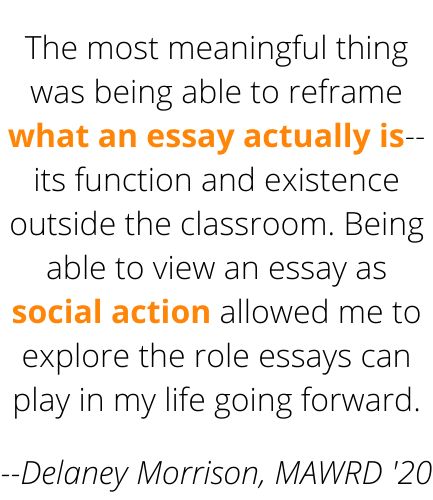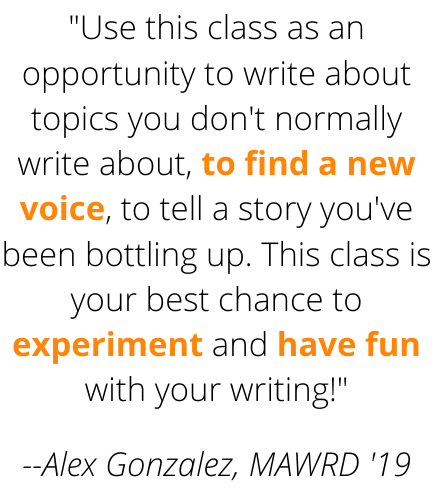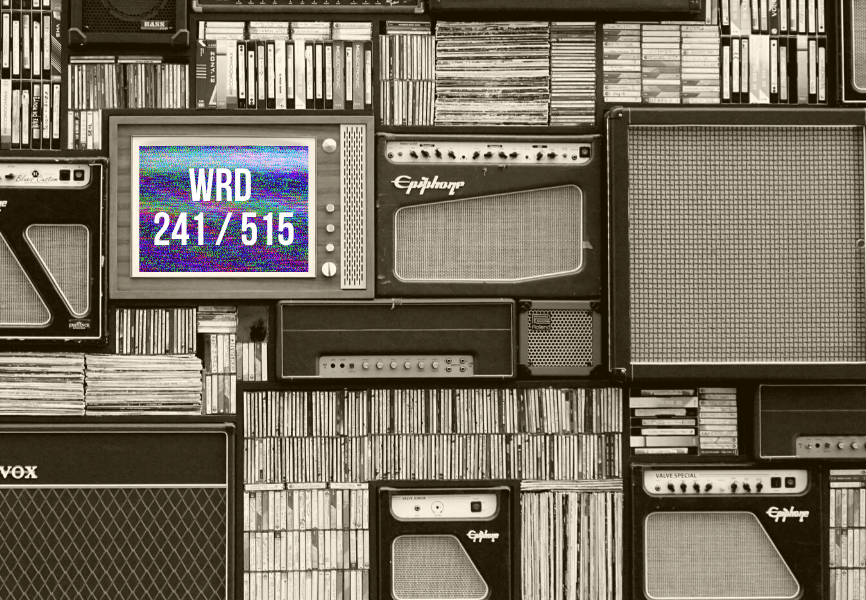This upcoming spring quarter, students can learn about the essay in a cross-listed, online course for both undergraduate and graduate students. At the undergraduate level, this course is listed as WRD 241: The Essay From Print to New Media, and at the graduate level, students can look for WRD 515: The Essay.
WRD 241/515 will be taught by Professor and Executive Associate Dean Pete Vandenberg, who shared in more detail the workings of the course.

Tell us a little bit about this class. What is WRD 241/515?
WRD 241/515 is an introduction to one of the most elastic, and perhaps oldest, written genres. We’ll explore the essay from its origins in alphabetic text to contemporary renditions in film, audio, and interactive media. We’ll quickly engage the idea that liberal use of the term to describe everything from thesis-driven high-school compositions to the dreaded “college application essay” masks what is most interesting about the genre for both writer and reader.
With close attention to social, political, and historical contexts in which writers and readers operate, we will consider how essayists work simultaneously within loose genre boundaries to meet aesthetic and persuasive ends.
What are some of the key “readings” for the course?
We’re going to read, view, and listen to a lot of essays drawn from across a range of sources—from a selection of Montaigne’s work dating back to the 1500s, to canonical essays often taught in such classes, to contemporary expressions of the essay in modes beyond the alphabetic. We’ll even read the essays of former students who have agreed to pass their work along to other students.
Like all courses in the program, of course, this one will engage the history and theory informing its subject matter. So we will read arguments that want to frame the essay—its purpose, elasticity, and capacity for stimulating cultural production. We’ll read about structure and undermining structure, the value and purpose of narrative elements in the essay, and we’ll definitely read about the essay as rhetorical action.

What kinds of essays will students be asked to write throughout this class?
This course will be a “creative writing course” in the way that John Dewey imagined that concept in the last century—as a pedagogical move through which the practice of craft allows one to learn something about what they are studying. It’s possible that students will become great essayists during the course, but we won’t put that kind of pressure on ourselves! Writing about the essays we write, so as to think more productively about essays and essay writing, will be at least as important. We’ll also write in response to the theory and history we’ll read. Toward the end of the course, as we explore the ways the written essay has had an impact on multimedia, we’ll be “writing” with image and sound as well.

How does the online factor come into play? What can students expect each week when they sit down to do work for this course?
I hope it is ok to say that students can expect to do a fair amount of writing! Before I taught online, I worried about what would be lost—the give and take of discussion, all the channels of communication that make up a face-to-face course: facial expression, body language, gesture, and so on. I worried that I’d never come to know the students. I was completely and pleasantly caught off guard by the opposite. What I found to my great delight was that structured interaction in the online environment leads to dramatically better insight into students’ thinking, ability, and interests because they provide so much more to read. What’s lost in weekly interaction is made up for in an abundance of writing in both directions. For students and teachers in a writing program, that’s about as good as it gets!
Why “The Essay?” What do you hope students leave this class learning or alternatively, what mindset do you hope they come in with?
Coming to understand “the essay,” as a “stance” or a “practice” rather than a form is perhaps the point of the course. Virginia Woolf wrote about the essay like a trip one heads out on without knowing where one might go or when one might be back; in that sense, the essay is all about the relationship between thinking and writing—the act of writing rather than the thing written. One will not need genius or talent in this course quite so much as a willingness to ask questions and the patience to listen for answers. I’m excited to get started!
